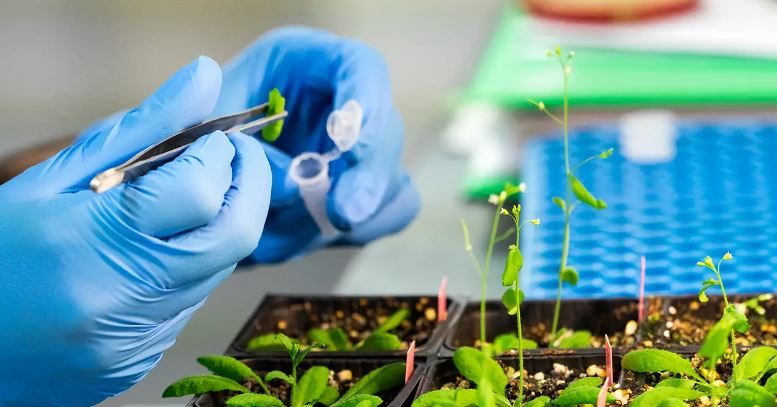Registration Request for Clorantraniliprole and Bacillus amyloliquefaciens Mix in Brazil
Brazil
MoA has released a summary containing 106 requests for registration of pesticides, which are 31 herbicides, 31 fungicides, 32 insecticides, etc. (MAPA)
In compliance with court rulings, Anvisa approves the toxicological evaluation of Acetamiprid 725 g/kg WG from Biorisk; Lambda-cyhalothrin 240 g/kg WG from SM Agrocare; Fluroxypyr-meptyl 115 g/L ME from BRA Defensivos; Flumioxazin 500 g/L SC from Proregistros; and Glufosinate – ammonium salt 880 g/kg SG from Solus. (Anvisa)
Nutrien has announced the sale of five fertilizer mixing plants, with a capacity of 3 million tonnes/year and warehousing capacity for 112,000 tonnes, have halted operations in 2024. “Nutrien informs it continues to offer a robust portfolio of agricultural inputs and solutions that meet Brazilian farmers needs. As part of the global business optimization strategy, the company has decided to discontinue fertilizer mixer operations in Brazil in 2024″. (Nutrien)
High-density planting of Arabica coffee can double productivity in the first harvest without increasing nitrogen fertilization, while reducing costs and maximizing fertilizer efficiency. (Incaper)
Roberto Levrero, president of the Brazilian Association of Plant Nutrition Technology Industries and leader of the Agricultural Inputs Thematic Chamber, has taken up the post of Inputs Director at FIESP’s Agribusiness Department. (Abisolo)
Excessive rainfall worsens the target spot (Corynespora cassiicola) and cercospora (Cercospora kikuchii) diseases in the State of Mato Grosso, causing losses of up to 60%. Farmers are adopting intensive management with up to 5 fungicide applications, with a cost increase of 3 bags/ha. (Sindicato Rural de Sorriso; Embrapa)
Use of pesticides in the State of Maranhão has increased 191.5% since 2013 (Ibama)
Yara Fertilizers has announced the gradual suspension of production of phosphate fertilizers and sulphuric acid at its Cubatão and Paulínia plants, in the State of São Paulo. The complete hibernation of the plants is expected by 3Q2025. (Yara Fertilizantes)
The largest seizure of counterfeit soybean seeds ever recorded in Brazil happened after the Court of Justice of São Paulo decided the seizure of 1,405.8 tonnes of seeds in Santiago, State of Rio Grande do Sul. The suspicion was the seeds would be sold illegally, amounting to the crime of counterfaiting. Estimated value of the cargo reaches US$ 3.43 million. Lawsuit was filed by CropLife Brasil. (CropLife Brasil)
Federal University of the Southern Frontier – UFFS obtained its second green patent with a biosensor that detects glyphosate in water. It was developed in the cities of Realeza and Laranjeiras do Sul in the State of Paraná, and identifies 0.01 ppm of the herbicide in up to five minutes. Made with xanthan, copper, and silver salts, it is low-cost and biodegradable. UFFS has 16 patents under review at INPI. (UFFS)
Ministry of Agriculture declared a phytosanitary emergency in the States of Amapá and Pará due to the “witch broom” (Rhizoctonia theobromae) cassava pest. (Mapa)
Oswaldo Cruz Foundation – Fiocruz is debating the excessive pesticide use in Brazil after China suspended soybean imports due to contamination. Brazil is the world’s largest consumer of pesticides, with companies like Cargill and ADM among the biggest users of these substances. Fiocruz suggests adopting sustainable alternatives, such as agroecology, to reduce the impacts on health, the environment, and international competitiveness. (Fiocruz)
Fundecitrus launched the “Zero and Ten” campaign to reinforce the control of the psyllid (Diaphorina citri) and combat greening in citrus orchards in the States of São Paulo, Minas Gerais, Mato Grosso do Sul and Goiás. The campaign highlights management measures such as insecticide rotation, proper spraying, and removal of diseased plants to prevent the spread of the disease, especially in regions with high incidence. (Fundecitrus)
Adama has nominated Marcelo Gimenes as the new fungicide strategy leader in the country. (Adama)
Military Police of Goiás seized 90 kg of pesticides smuggled from China, valued at over US$ 12,251, which entered Brazil through the border with Paraguay and were intended for sale in the States of Goiás and Minas Gerais. The products, prohibited in Brazil and lacking regulation from MAPA, IBAMA, or AGRODEFESA, were forwarded to the Federal Revenue in Goiânia. (PMGO)
Daniel Amaral Alves Ferreira is the new market access director for UPL in Brazil. (UPL)
National Union of Agricultural Aviation Companies requested reinforcement from agricultural and environmental surveillance agencies in monitoring illegal drones used in spraying operations. (Sindag)
Labor Public Ministry in the State of Mato Grosso do Sul recommended ACP Bioenergia Ltda. To suspend pesticide spraying near to the Santana Resettlement, in Brasilândia, due to worker exposure. (MPT-MS)
Study by the Institute for Consumer Defense analyzed 27 ultraprocessed foods and identified pesticides in 59.3% of the samples, with glyphosate present in seven products. (Idec)
The State of Tocantins recorded a 10% increase in the return of empty pesticide containers in 2025. (Adapec)
Embrapa is investigating a viral outbreak in tomatoes caused by the whitefly (Bemisia tabaci), which has increased over the past three years, causing losses in the States of Goiás, Minas Gerais, São Paulo, and Paraná. (Embrapa)
The State of Goiás has started reformulating bioinputs and pesticides legislation to align state regulations with Federal Law No. 15070/2024. The focus is to update State Law No. 21005/2021, separate bioinputs from pesticides, and create a dedicated monitoring system. (Seapa; Agrodefesa)
Boa Safra Sementes announced Patrícia Baceti as the new administrative and control director. (Boa Safra)
“Fertilizante Certo” program from Aprosoja MT offers soybean and corn farmers laboratory testing and collection of fertilizers to ensure quality and prevent fraud. (Aprosoja MT)
Banana farmers in the States of Acre and Rondônia increased productivity using a fungicide application technique developed by Embrapa Amazônia Ocidental to control Sigatoka-negra (Mycosphaerella fijiensis). (Embrapa)
Sugarcane borer (Diatraea saccharalis) caused losses estimated at around US$ 1.4 billion in 2024. An 8.5% infestation increases ethanol production costs by up to 18%. Genetically modified sugarcane varieties developed by the Centro de Tecnologia Canavieira, which control the pest with over 95% efficacy, are the most efficient solution, replacing conventional methods. (Pecege Projetos; Unesp)
Researchers from the National Institute for Amazonian Research, Embrapa, and the Federal University of Amazonas identified Trichoderma rugulosum, effective in controlling tomato wilt caused by Sclerotinia. The study found that Amazonian Trichoderma strains were more efficient than many chemical products and also promoted plant growth. (INPA; Embrapa; UFAM)
MoA has implemented phytosanitary requirements to import strawberries from South Korea through Ordinance No. 1243, dated February 13th, 2025. Each shipment must be accompanied by a Phytosanitary Certificate, ensuring compliance with safety standards to prevent the presence of fruit flies and bacteria such as Xanthomonas fragariae. (MAPA)
Integrated Company for Agricultural Development of Santa Catarina warned beekeepers and meliponists in the State of Santa Catarina about the obligation to report the presence of the Small Hive Beetle (Aethina tumida), which threatens honey production. The pest, identified in the State of Mato Grosso, can cause significant losses in hives, particularly in the larval stage. (Cidasc; MAPA)
CTVA Proteção de Cultivos has requested registration of DERMACOR ECOPRIM, a mixture of the chemical active ingredient clorantraniliprole with the biological agent Bacillus amylloliquefaciens. (Anvisa)
Since 2006 Ministry of Agriculture has approved 4216 generic pesticide registrations. 10 companies have 44,95% of the total approvals. (AllierBrasil)

Latin America
Nairo Piña Rojas is the new president of Sumitomo for Latin America from April 1st. (Sumitomo Chemical)
13th report of the National Monitoring Network for Dalbulus maidis recorded an increase in the presence of the corn leafhopper in 410 locations in Argentina from January 24th to February 7th, 2025. (Obispo Colombres Agroindustrial Experimental Station)
Bioceres reported a 24% revenue decline in the second fiscal quarter of 2024-2025, totaling US$ 106.7 million, due to a contraction in the crop protection and fertilizer market in Argentina. (Bioceres)
Residents of El Marquesado, Argentina, reported the use of drones to spray pesticides near residences. The Buenos Aires Supreme Court prohibits spraying within 1,000 meters of residential areas. (Asamblea Paren de FumigarNos)
Agricultural unions in Peru are rejecting congressmen’s attempt to repeal the moratorium on GMOs (Law 29.811), which is in force until 2035. They call on Congress to respect international agreements and defend a GMO-free agricultural model. (Conveagro)

READ MORE:

